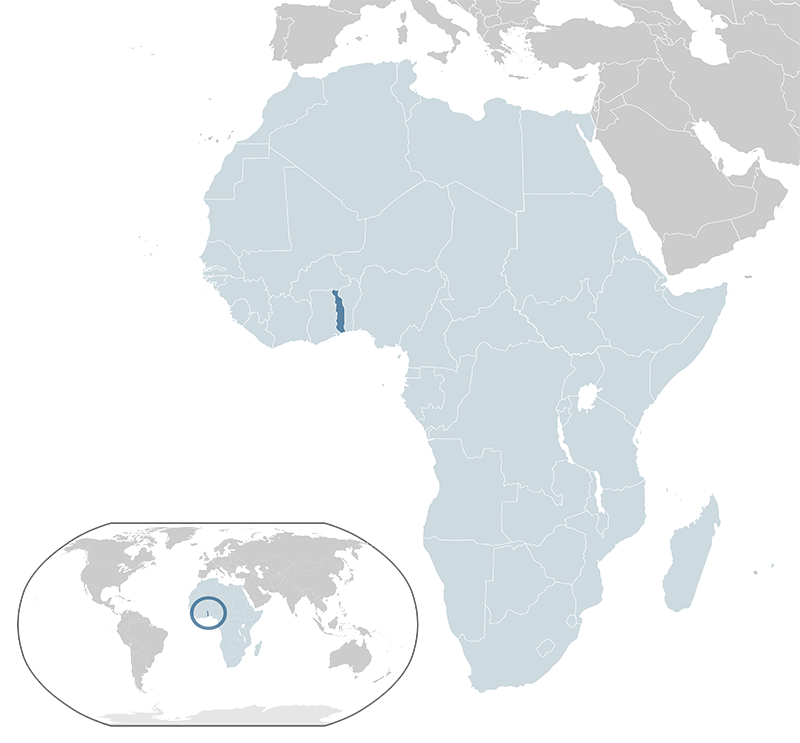
- Population:
- 9,515,000
- Religion:
- Christianity
Togo was historically part of various West African kingdoms before becoming a German colony in the late 19th century. After World War I, it was administered by France and gained independence in 1960. Since then, it has experienced periods of authoritarian rule and political tensions but continues to develop its economy, focusing on agriculture and trade.
Togo, officially the Togolese Republic, is a country in West Africa. It is bordered by Ghana to the west, Benin to the east, Burkina Faso to the north, and has a small coastline along the Gulf of Guinea to the south. Covering an area of approximately 56,785 square kilometers, it has a population of about 8.6 million people as of 2023. The capital and largest city is Lomé. The official language is French, with several indigenous languages also widely spoken. Togo operates as a presidential republic. The economy is primarily based on agriculture, particularly cotton, coffee, and cocoa, as well as phosphate mining. Togo is known for its diverse cultures, traditional crafts, and scenic landscapes, including savannas, hills, and coastal plains. The country is a member of international organizations such as the United Nations, the African Union, and the Economic Community of West African States (ECOWAS).






